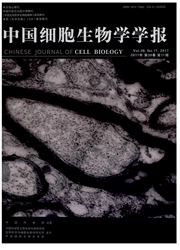

 中文摘要:
中文摘要:
雌激素受体(estrogen receptorα,ERα)是依赖配体活化转录因子的核受体家族成员之一,参与靶细胞的增殖和分化。ERα活化的经典途径是与雌激素结合后直接作用于靶基因上游的雌激素受体反应元件(ERE),从而诱导靶基因转录。雌激素受体的功能受许多因子调节,包括与之结合的配体、DNA上的顺式元件、募集的辅助调节因子及细胞环境等。在雌激素受体相关疾病中,除乳腺癌和子宫内膜癌外,近年研究表明心血管疾病、骨质疏松症、阿尔茨海默氏病等疾病也与雌激素受体密切相关。雌激素的生物效应与多种疾病的发生、转归和预后密切相关。本文将综述几类辅助调节因子对雌激素受体介导的基因转录的调控,雌激素受体相关疾病,及环境有害物质对ERα功能的影响。
 英文摘要:
英文摘要:
Estrogen receptor(ERα) is one member of nuclear receptor families,which act as transcription factors in a ligand-dependent manner.It is involved in the proliferation and differentiation of target cells.Traditionally, in the treatment of estrogen,ERαdirectly binds to ER-response element(ERE) located in the upper stream of target genes(promoter region),thereby inducing the target gene transcription.The function of ERαis modulated by many factors,including the combination of ligand,the response element on DNA,recruitment of co-regulators and cell environment.Breast cancer and endometrial cancer have been previously reported as the main ERα-related tumors, while recent studies have demonstrated that cardiovascular disease,osteoporosis and Alzheimer's disease are also strongly associated with ERα.Furthermore,the biological effects of estrogen are closely related to the occurrence, transform and prognosis of many diseases.This review will report several co-regulators involved in ERα-mediated transactivation,ERα-related diseases and the influence of environmental pollutants on ERαaction.
 同期刊论文项目
同期刊论文项目
 同项目期刊论文
同项目期刊论文
 期刊信息
期刊信息
